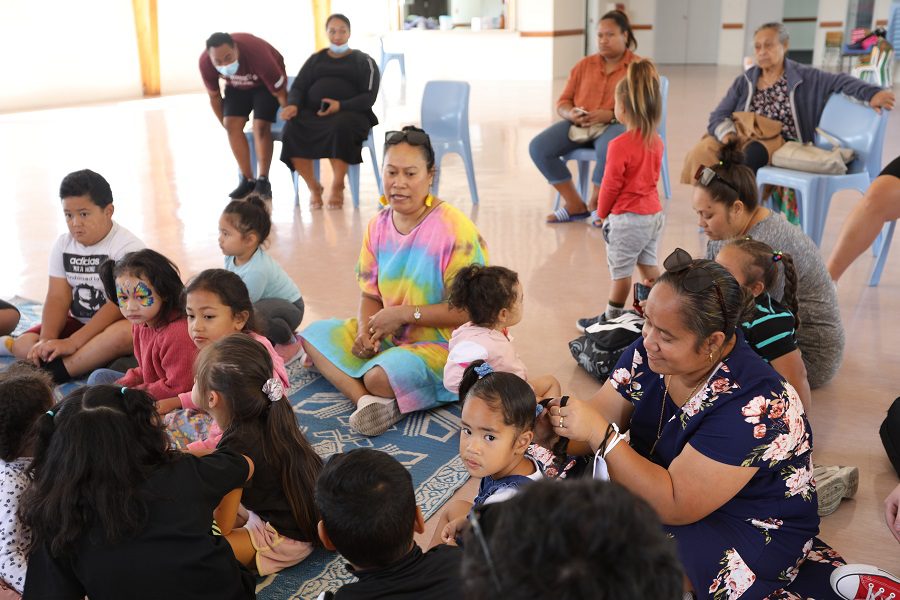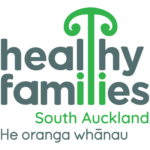
Fetu-i-Sasa’e Aoga Amata East Tamaki is currently taking part in the Early Years Project (EYP) offered by Healthy Families South Auckland (HFSA). They are in search of ways to get better engagement with parents given a diminishing early childhood centre roll. This has been mainly due to the Covid-19 pandemic. In building the capability of their staff, through design-thinking workshops, they have gained a stronger ability to connect, create and find solutions to issues with their centre families.
For centre manager Alovao Fogavai, attending HFSA’s capability-building design-thinking workshops with The Cause Collective has been an eye-opening experience. “We took part to try to find out the reasons why our numbers were falling. We knew that a lot of families kept their children home because of Covid,” she says.
“When we took part in the workshops we found out a key reason for our centre roll falling was due to the need for establishing a communication platform to strengthen our communication with our parents, families and community.”
Fetu-i-Sasa’e Aoga Amata East Tamaki previously relied heavily on email to communicate with parents which had low engagement and response rate from parents. Following the design-workshops and fun-day event they were able to identify that parents preferred a Facebook messenger group to communicate quickly and effectively with staff.
“We set up a box and asked parents to answer the question of what’s the best way for us to communicate with them about their children and the centre, and from the responses we received we found out that they wanted a messenger group as it was easy to use,” says Alovao.
“Parents are a child’s first teacher. When they are engaged with a child’s learning and build strong connections with their school there are significant benefits for the child such as them enjoying learning and being motivated to do well,” says Andy Piutau, Lead Systems Innovator, Healthy Families South Auckland.
“The aoga has told us that the messenger group has had a positive impact as parents have been active in their responses to staff notices and child updates, reinforcing two-way communication between parents and staff.”
“This platform and its use by parents and staff is likely to have a wider community impact as well. This Samoan early childhood centre in particular is connected to the EFKS East Tamaki Church. The learnings from the new communication platform at the centre can be adopted by the church to strengthen and improve their communication with its members. If one centre is successful with improving its communication with its members, this could have a greater impact on the 71 EFKS churches nationwide and their affiliated centres,” says Andy.
The Early Years Project takes a collective impact approach by building the design-thinking capability of Early Childhood Education (ECE) teachers and staff so that they are able to create potential solutions with families to help improve the learning and wellbeing environment for their early learners.
“Fetu-i-Sasa’e Aoga Amata is a good place for my child, the teachers listen to us,” says Su’a Moana who is a father of a pupil, and attended the centre’s Family Fun Day Event. For Su’a, it’s important that he and his wife are actively involved in their child’s education at Fetu-i-Sasa’e Aoga Amata. Su’a and every parent that attended the family fun day event answered the ECE’s mini design-challenge question to improve the communication between parents and the centre.
For Alovao and her staff, it’s not just about communicating with parents regarding their children’s learning and notices at the aoga amata. Better engagement with parents also helps to build stronger connections with a family even when the child has moved to primary school. “They can also feed back to us how their children are doing at primary when they have moved on from our aoga amata,” she says as they consider the long term benefits of staying connected with the families.
Lead Systems Innovator Andy Piutau says HFSA’s role within the prevention system is about empowering local leadership and community to activate innovation to create health promoting environments in the places where we live, learn, work and play. “To effect systems level change for a community, it is critical that an understanding of that community, its needs, unique challenges and opportunities, are considered in the solution,” he says.
“We’re enabling ECEs to think differently about the underlying causes of poorer health and learning outcomes, and identify the changes that can be made together. It’s important that they include their centre families in the process as opposed to just creating solutions without consulting them.

